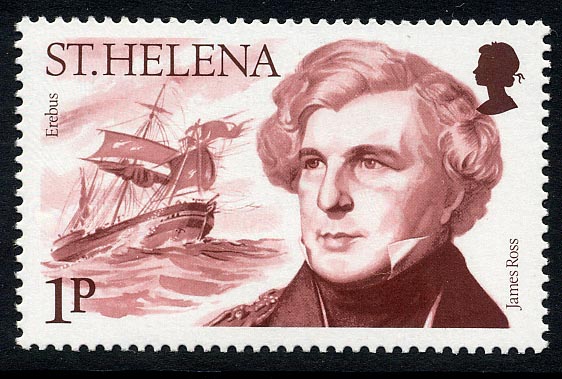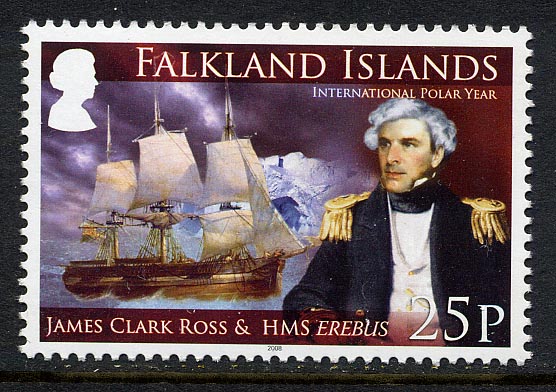

ROSS Sir James Clark (1800-62) was one of the most experienced of all the Royal Navy officers who explored the polar regions during the 19th entury. He joined the navy in 1812 as a midshipman under the command of his uncle Sir John Ross, serving in the Baltic, the White Sea, and the North Sea during the last years of the Napoleonic War (1803-15). In 1818 he joined the first of a series of naval expeditions to the Arctic in search of the North-West passage with Sir John Ross in command of the ISABELLA and William Edward Parry in command of the ALEXANDER.
During this and the four subsequent expeditions in which he served under Parry Ross showed a special magnetic ob¬servations, under the instruction of Sir Edward Sabine, and in natural history. He also became skilled in the art of polar land travel, in navigating ships in ice, in combating scurvy, and in maintaining the morale of his men. In 1827 Ross accompanied Parry in an attempt to reach the North pole from Spitsbergen, pulling boats and sledges across the ice. Between 1829 and 1832, Ross, now a commander, sailed once more with Sir John Ross on an expedition to find the North West passage. It was on this voyage that he achieved fame by discovering the north magnetic pole on the west side of Boothia Peninsula. In 1835-6, in command of HMS COVE, Ross attempted the rescue of a number of British whaling ships beset in Davis Strait.
His crowning glory, however, was the Antarctic expedition of 1839-43. On this occasion the Admiralty put Ross in command of H.M. ships EREBUS and TERROR with instructions to carry out a magnetic survey in the far south. Ross penetrated, for the first time, the ice of the Ross Sea, discovered the Ross Ice Barrier, and charted the coast of that part of Antarctica which he claimed for Britain as Victoria Land. During a second season the James Ross Island group, off the northern tip of the Antarctic Peninsula, was discovered and also claimed for Britain. For these significant discoveries Ross received a knighthood. His last polar expedition was in 1848-9 when, with HMS INVESTIGATOR and ENTERPRISE, he was sent to search for cir .Tohn Franklin.
SG488 Log Book March 2005
